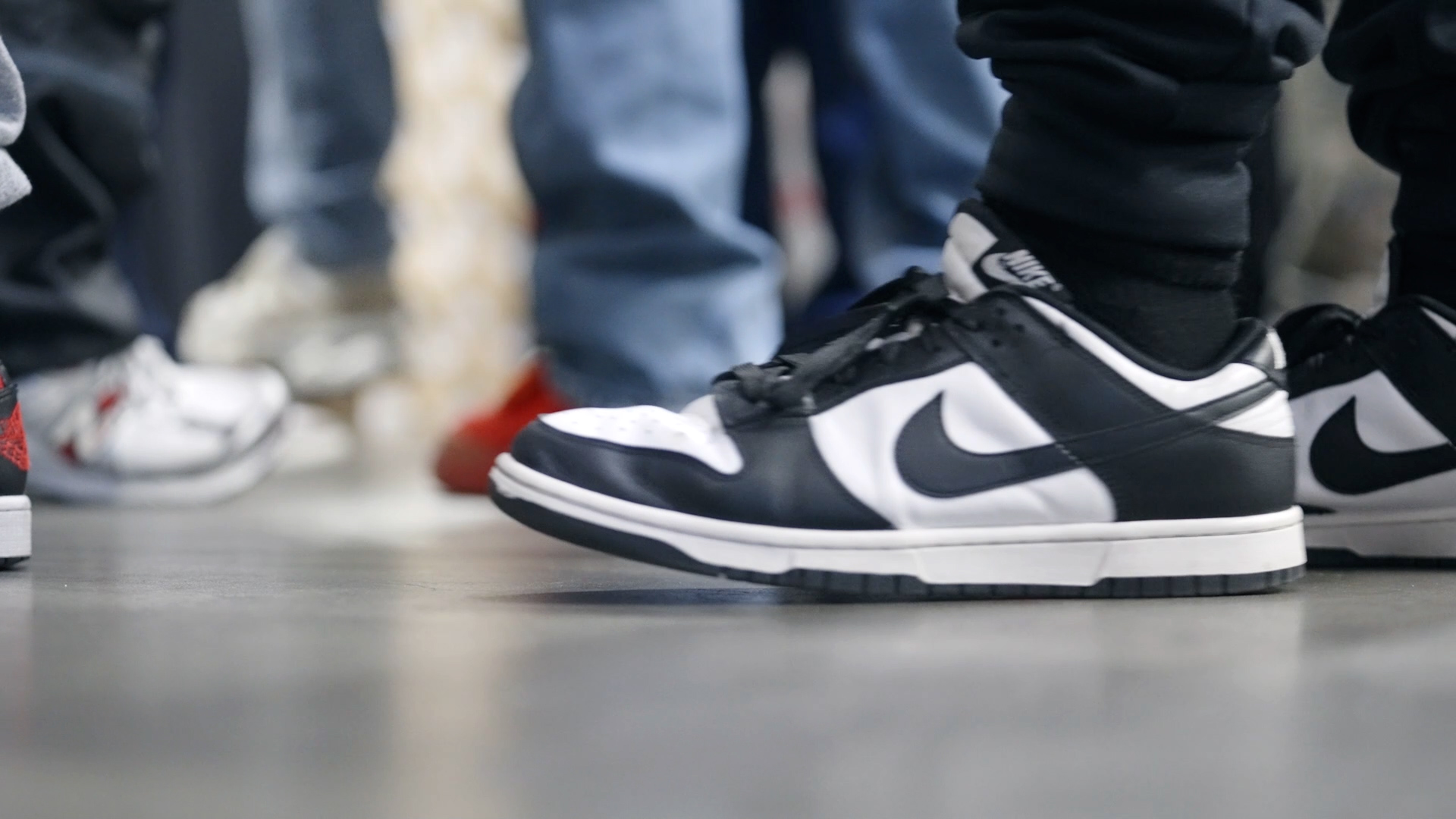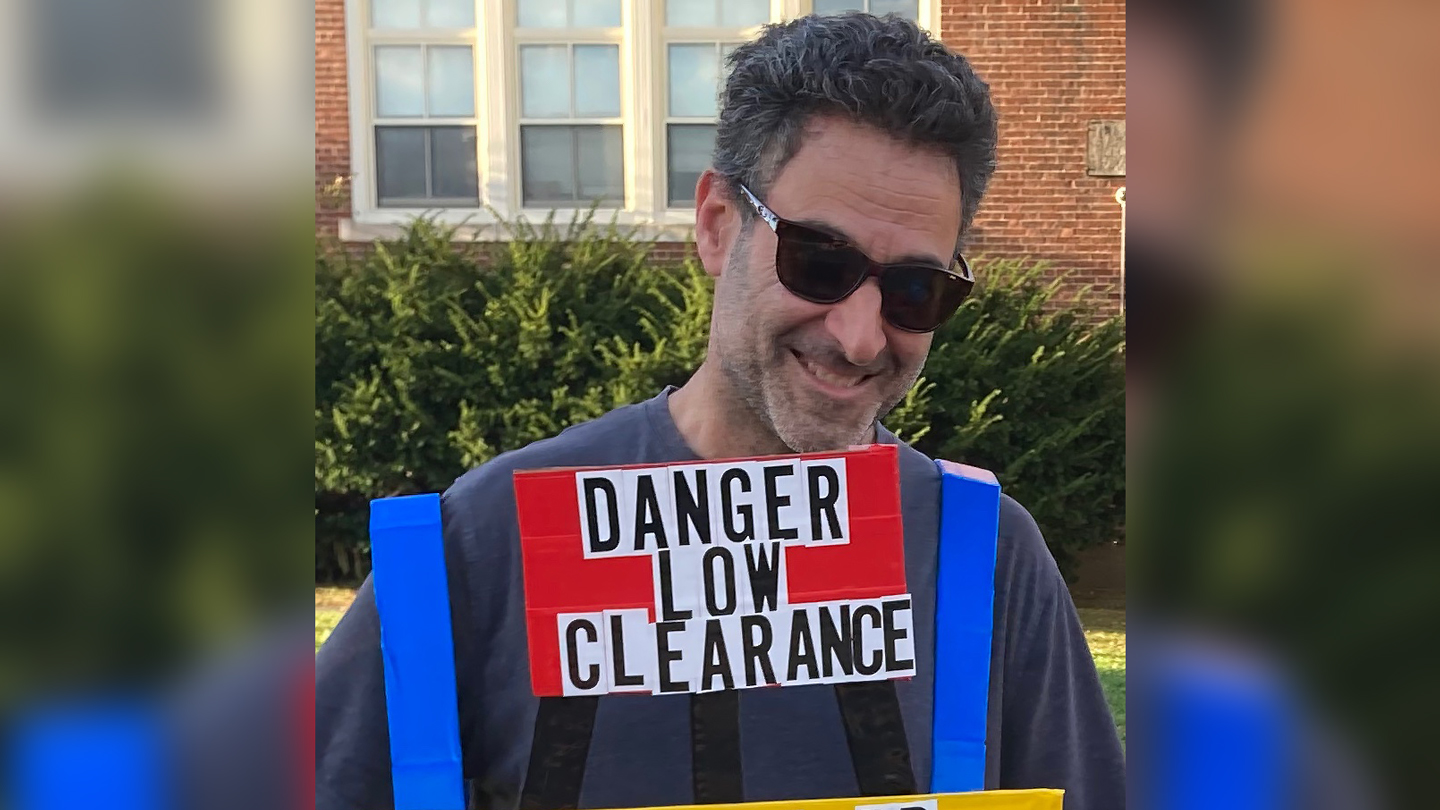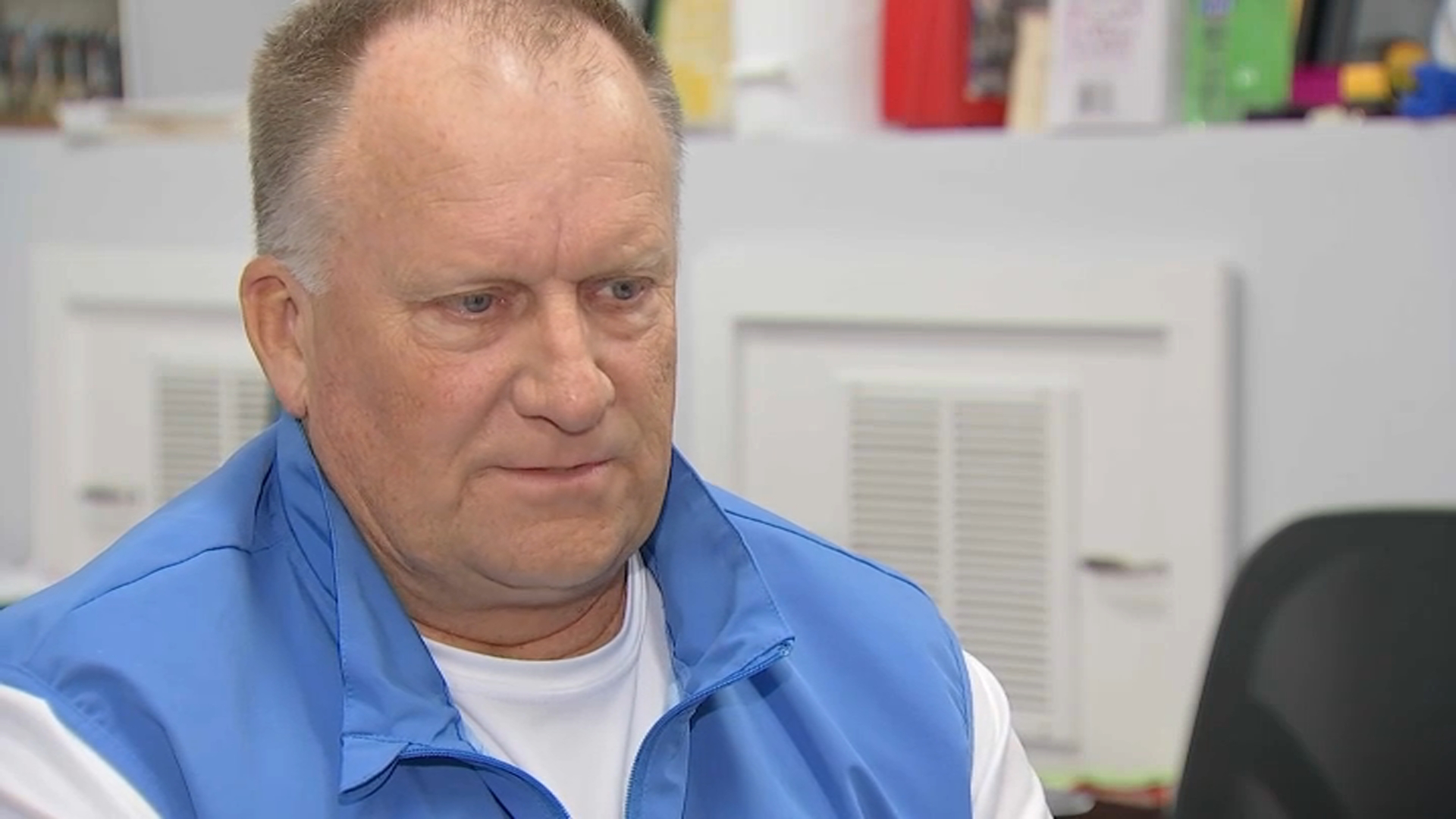In a six-part series, NBC10 Boston is exploring sneaker culture in Greater Boston.
We'll look at how and why public perception of wearing "kicks" in a more formal setting has shifted. We'll hear from the experts.
We even feature someone who might be an unlikely fashionista - Patriots Owner Robert Kraft talks about how he embraced sneaker culture and is even helping shape it now.
Episode one: Sneakers everywhere
Chasing the tipping point in Boston when sneakers went from occasional footwear to everyday essentials took us to Gillette Stadium and Patriots owner Robert Kraft.
He says it was about 10 years ago he ditched dress shoes for sneakers – a decision driven by his physical and emotional wellbeing.
“I had a different perspective on life,” he told NBC10 Boston. “I had lost my beloved wife, Myra, and when we buried her, I looked at life a little differently. And I knew my quality of life was better walking in comfortable sneakers.”
Nike’s CEO took notice and asked Kraft if he’d consider a collaboration, a Robert Kraft-inspired Air Force 1. The proceeds would go to charity. A partnership was formed. In September, the ninth edition of a Kraft-inspired shoe was released – the Patriots Air Force 1 Ultra Flyknit Low.
Kraft still rocks sneakers in the office, on the sidelines and even at special events. He helped create a fashion trend, starting in 2014, and he did it accidentally.
“I think so. It’s what people tell me: that when they saw me doing it, it made them comfortable,” Kraft said.
Episode two: Sneaker city
After steadying its feet following the pandemic, Boston-based New Balance is on an eye-popping revenue trajectory.
In a fourth quarter interview with NBC10 Boston, CEO Joe Preston all but guaranteed his company will exceed $6 billion in revenue this year. That will mean 33% in revenue growth since 2017.
He’s also not bashful about reaching the company’s next target: $10 billion.
“Once we realized that through the pandemic we were going to survive, we began to raise our ambition and we developed a plan to get to $7 billion on our way to ten [billion dollars],” Preston said. “And we said if we were to get to $7 billion with the right level of mix, with the right velocity, then 10 billion was within our reach. And we're on track to do that through the end of next year.”

Part of that growth plan includes a newly-built New Balance factory in Londonderry, New Hampshire, set to break ground in November. That will be the sixth New England-based factory for the company, which prides itself on manufacturing some of its sneakers in the United States. It’s history in Massachusetts goes back more than a century.
Meantime, from a marketing perspective, reaching a younger, more fashionable crowd is also in the shoemaker’s future. A decade ago marathoners were a core New Balance customer, now it’s almost as likely to be someone who doesn’t play sports at all.
“Our brand and sports marketing teams have done a great job of connecting the brand to athletes and to music ambassadors – people in the entertainment industry that have been representing the brand well and have been allowing us to get exposure for younger people all around the globe to experience New Balance for the first time,” Preston said.
Episode three: Chasin' paper
Buying a highly anticipated pair of sneakers on the day they drop is an incredibly difficult feat, especially since the proliferation of bots. They are a digital tool for resellers, allowing them to buy dozens of sneakers online before the average consumer can purchase even one.
Once the sneakers are sold out, their value rises rapidly on the resale market. Major brands say it’s something they’re constantly trying to thwart, but their efforts are largely defeated.
“The reselling piece, bots in particular, is a huge problem for our industry. So that certainly is a challenge,” Puma NA CEO Bob Philion told NBC10 Boston. “It’s something that we have a lot of tools in place to try to make sure we’re getting to our end consumer.”
As teenagers, two brothers from Weymouth – Joey and Jonathan DiModica – co-founded a sneaker-selling platform called Got Sole that brings resellers together convention-style. Now, 10 years later, they call the thousands of people who attend their events around the country "a community," because they believe they’ve made sneaker-buying more inclusive despite a bot-dominated environment.
“We try to make an event accessible to as many people as we can,” said Got Sole co-founder Jonathan DiModica during a sneaker convention at the DCU Center in Worcester. “We have such a wide variety of ages, ethnic groups, backgrounds, whatever it might be, that are at this event.”
His brother, Joey DiModica added, “There's no barrier to entry as well, which is like the best part about it, because anyone and everyone can come in and enjoy sneakers as a whole.”
Vendors sell sneakers at a Got Sole event for as little as $30, but prices can go all the way up into the tens of thousands. There’s typically a $25 charge to get in, and negotiations between sneakers buyers and sellers get fierce.
“It's supply and demand – whatever someone is willing to pay for a sneaker is what it's going to sell for,” Jonathan DiModica told us.
Episode four: Influence of NBA style
When Los Angeles-based Brandon Williams, stylist to NBA stars, touched down in Boston, he had less than 48 hours to get his client, Celtics point guard Jrue Holiday, outfitted for the first month of the season. The assignment came with added pressure because in two days Holiday would make his debut as a Boston Celtic at a game in New York City -- a lot of eyes watching.
“It is a lot of pressure. I feel it,” Williams told NBC10’s Glenn Jones while shopping at Concepts on Boston’s Newbury Street. “But over the course of time, just having success with the clients and really understanding my process keeps me away from the stress.”
The big fashion moment for NBA players (and their stylists) is called a tunnel walk. It happens as players enter the basketball arena ahead of the game and head for the locker room. A tremendous amount of thought – and money – goes into these flashbulb moments and what’s captured proliferates Instagram where it’s consumed by millions. The more influential the player, the more likely what he’s wearing will become trend-setting couture, particularly what’s on his feet, according to Williams.
“They get to display the sneakers to the world and, us as bystanders, as fans, we get to be bystanders of all this sneaker culture. What's leftover is an appetite. So, we come to stores like Concepts and we want to go shopping,” he said.
League Fits, NBA Fashion Fits, Bleacher Report Kicks – with followers ranging from 250,000 to more than two million – are just a few of the fashion-obsessed Instagram accounts that can drive sales for a brand’s lines of sneakers and clothing. There is plenty of attention on the wardrobes of other professional athletes too, but Williams says NBA players and their tunnel walks are at the top of the style-maker food chain, the most influential when it comes to stimulating spending.
“Tunnel walks have 1,000% changed the landscape, economics of fashion,” he said.
Episode five: Gentrified
In the late 1980s and early 1990s, in Boston’s South End, the multicultural neighborhood was a hotbed of an emerging sneaker culture, according to longtime resident Dart Adams. Today, the sharply higher cost of housing in the South End means many populations of 40 years ago can’t afford to live there anymore.
Adams, a historian and writer who has lived in the South End for four decades, equates the area’s gentrification with the evolution of Boston’s sneaker culture. He says by 2010, sneaker culture changed from an exclusively inner-city sensation to a growing suburban one.
“It very much affected the sneaker economy and the sneaker world and sneaker culture,” Adams told NBC10 Boston. “When the resale market hit, the resale game, where people were buying sneakers and then flipping them, it took a lot of the fun and the enjoyment out of the culture and made it clearly something economical where there were people that were buying and flipping sneakers that didn't necessarily care about the sneakers.
“They (suburban teens) had the capital; they had the backing. Whereas kids in the inner-city: who had the money to buy multiple pairs of sneakers?”
Jonathan DiModica, who was a teen growing up in Weymouth in the 2010s, eventually co-founded a business in the sneaker industry called Got Sole. It’s an in-person, convention-style event platform where used and collectible sneakers are bought and sold. He believes the resale industry has provided entrepreneurial opportunities to a community of people who may not have otherwise had the chance to be their own boss.
“People have found opportunity, which I think is a beautiful thing. Many people have found their version of the American Dream through this,” DiModica said.
The roots of sneaker culture are easily traced back to sports and music – particularly basketball and hip hop, where fan bases were largely Black in the late 1980s. Michael Jordan and Run DMC are considered cultural forefathers. Now the popularity of sneakers goes far beyond basketball and hip hop fan bases with sneaker sales in the United States expected to reach $22.7 billion this year, according to Statista. That’s a $3.4 billion surge since 2018.
Episode six: The future
EndState, a sneaker-maker based in West Roxbury, has reimagined the future of the sneaker industry.
Blockchain specialist Bennett Collen and experienced sneaker designer Stephanie Howard cofounded the company with a strong belief they can appeal to sneakerheads in an entirely different way.
"I think what we're doing with our technology and our product design, pulling it all together, is the future of storytelling," Howard told NBC10 Boston.
Her method for designing shoes as part of an artist or athlete collaboration is not entirely different from what may happen at some of the bigger brands where she has worked, like Nike and New Balance.
For example, Endstate released a shoe with DeVonta Smith of the Philadelphia Eagles called "Honey Drip," infusing the wide receiver's life and career into the design.
However, it's the way the shoemaker combined a novel technological flair that seems to set it apart.
Endstate connects each owner of Smith's sneakers with a non-fungible token, or NFT – a digital record of the shoes, hosted on the blockchain.
The technology in the shoe can be scanned with just about any smartphone.
EndState says this provides a higher level of security in the multibillion-dollar resale market, because there's far greater confidence in a pair of shoe's authenticity if it's "cryptographically secured."
"Resale is so popular," Collen said. "But authentication can be so spotty."
Further, from a consumerism perspective, that same digital record can give the owner of Honey Drip access to exclusive experiences.
"Throughout the season, [DeVonta Smith's] fans were gifted a cheesesteak for any receptions of 41-plus yards, hitting their inboxes immediately after the play," according to the EndState website.
The only requirement to get the cheesesteak: Owning an NFT associated with Honey Drip.



